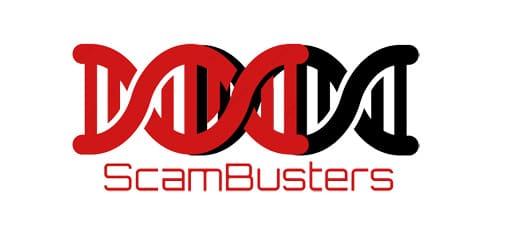Businesstech 21st October 2022
The Financial Sector Conduct Authority (FSCA) has declared cryptocurrencies a financial asset in South Africa, opening a path to professionalize and regulate the crypto industry in the country. It also opens the door to taking on scammers – with the threat of prison time and millions of rands in fines hanging over their necks.
On 19 October 2022, the FSCA issued General Notice 1350 of 2022 (the declaration), in terms of which it declared a crypto asset as a financial product under the Financial Advisory and Intermediary Services Act 37 of 2002 (FAIS Act).
According to legal experts at Cliffe Dekker Hofmeyr (CDH), the declaration comes in the wake of mounting risk in the crypto asset environment.
This is due to an exponential increase in the provision of crypto assets in South Africa, the rapid growth in interest in the use of crypto assets for investment purposes, and a significant increase in scams and fraudulent activities positioned as providing crypto asset-related investment opportunities.
South Africa has carried the dishonour of having some of the biggest and most costly crypto scams in the world, with the likes of Mirror Trading International and Africrypt making global headlines.
The declaration also comes directly from the threat of greylisting from the Financial Action Task Force (FATF).
The 2019 FATF review of South Africa found that the country has major deficiencies insofar as ‘there are no requirements for Virtual Asset Service Providers to be licenced or registered, and they are not subject to AML/CFT supervision’, CDH said.
“To the extent that South Africa did not fully remedy or significantly progress the recommendations by October 2022, it was at risk of being placed on the FATF grey list, which could have materially negative consequences for the country as a whole,” it said.
The latest declaration seeks to address the FATF report’s finding and is viewed by the FSCA as a critical interim step towards protecting customers in the crypto asset environment, pending the conclusion of broader developments surrounding crypto assets through, for example, the Conduct of Financial Institutions (COFI) Bill.
The declaration puts in place a regulatory and licencing regime for persons providing financial services in respect of crypto assets, having the effect that these crypto-asset financial service providers (FSPs) will be required to be licenced and consequently be subject to regulatory oversight and supervision.
Definition of crypto asset
Under the new declaration, a “crypto asset” is defined in the Declaration to mean a digital representation of value that:
- Is not issued by a central bank, but is capable of being traded, transferred or stored electronically by natural and legal persons for the purpose of payment, investment and other forms of utility;
- Applies cryptographic techniques; and
- Uses distributed ledger technology.
The definition of crypto assets was initially proposed in the Crypto Asset Regulatory Working Group’s Position Paper for adoption across all regulatory authorities and bodies in South Africa, and all regulatory authorities (including the FSCA) provided inputs and agreed to the definition that is included in the declaration, CDH noted.
Licencing and transitional arrangements
The declaration has the effect that any person who, as a regular feature of their business, renders financial services in relation to crypto assets, must:
- Either be authorised under section 8 of the FAIS Act as a financial services provider (FSP) or be appointed as a representative of an authorised FSP under section 13 of the FAIS Act; and
- Comply with the requirements of the FAIS Act and its subordinate legislation.
Any person who, as a regular feature of their business, renders financial services in relation to crypto assets without a licence will be in contravention of section 7(1) of the FAIS Act, unless exempted.
Such a contravention constitutes an offence in terms of section 36(a) of the FAIS Act, and a person found guilty of such an offence is, on conviction, liable to a fine not exceeding R10 million or imprisonment for a period not exceeding 10 years, or both.
Temporary exemption
To facilitate the transition, the FSCA has also published a general exemption from section 7(1) of the FAIS Act alongside the declaration. The exemption is a temporary exemption that exempts any person from the requirement to be licenced, on the condition that such person must:
- Apply for a licence under section 8 of the FAIS Act between 1 June 2023 and 30 November 2023. This means that a person currently rendering financial services in relation to crypto assets can continue to do so without contravening the FAIS Act, provided that a licence application is submitted within the stipulated period. The exemption will remain valid until the person’s licence application has been approved or rejected. If a person does not submit a licence application within the stipulated period, the exemption lapses.
- Immediately comply with Chapter 2 of the Determination of Fit and Proper Requirements for Financial Services Providers, 2017 published under FAIS Board Notice 194 of 2017 (“Determination of Fit and Proper Requirements”), which sets out the honesty, integrity and good standing requirements that apply to all FSPs, key individuals and representatives.
- Immediately comply with section 2 of the General Code of Conduct for Authorised Financial Services Providers and Representatives, 2003 (General Code) as if it is a licenced FSP. Section 2 of the General Code provides that an FSP must at all times render financial services honestly, fairly, with due skill, care and diligence, and in the interests of clients and the integrity of the financial services industry.
- Comply with the rest of the General Code by 1 December 2023.
- Provide the FSCA with any information that the FSCA requests that it is in the possession of, or under control of, the person, that is relevant to the financial services and/or similar activities rendered by such person.
The general exemption also exempts certain crypto asset ecosystem participants from the FAIS Act. These participants are:
- Crypto asset miners;
- Node operators performing functions in respect of the security and health of the network;
- Persons only rendering financial services in relation to non-fungible tokens.
“It is important to note that the declaration does not apply to or affect financial services rendered in relation to crypto asset derivatives. FSPs providing financial services in relation to crypto asset derivatives are already subject to the requirements of the FAIS Act and are not subject to the general exemption referred to above,” CHD said.
“Further, providers of crypto asset derivatives remain subject to the Financial Markets Act 19 of 2012.”
Draft exemption
In addition to the general exemption, the FSCA has also published a draft exemption which proposes to exempt licenced crypto asset FSPs and their key individuals and representatives from certain requirements of, amongst others, the General Code and the Determination of Fit and Proper Requirements.
One of the draft proposals is to grant a temporary 18-month exemption to crypto asset FSPs and their representatives from the regulatory examination requirements. This will allow existing crypto asset FSPs and representatives to continue rendering financial services in relation to crypto assets while they take steps to complete the regulatory examinations.
The draft exemption has been published for public comment, and submissions can be made in writing on or before 1 December 2022. It is envisaged that the final exemption will be published early in 2023.
The Declaration, general exemption, draft exemption, and related policy documents can be accessed here.
- Insights by


0 Comments